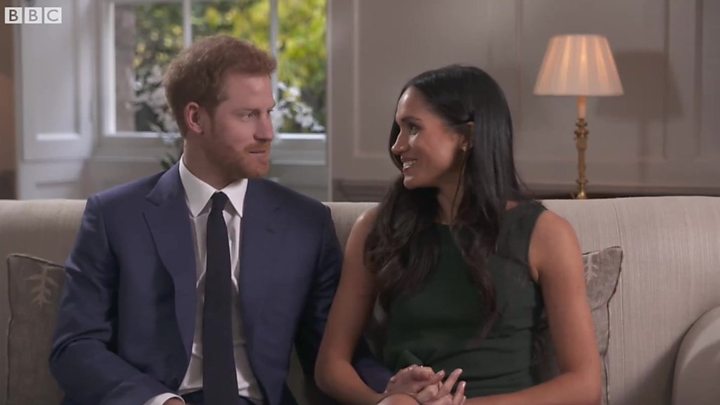From the New York Times:
On Tuesday, it was announced that Ms. [Meghan] Markle would — in addition to joining the Anglican Church — apply for British citizenship after marrying Prince Harry on an unspecified date in May in St. George’s Chapel at Windsor Castle, the site of many royal weddings.
Markle’s engagement to Prince Harry has been making headlines not only because it’s royal, but because she is stepping over some major traditional lines – she’s not royal, for one thing; she’s divorced, American and biracial – and, while Protestant, she attended a Catholic girls’ school.
The New York Times report linked above focuses in particular on the impact her marriage will and won’t have on racial problems significant in the U.K. as well as in her native United States:
But for Ms. Hirsch and other chroniclers of racial inequality in Britain, it is problematic to frame Ms. Markle’s engagement as too seminal a moment. The symbolism of Ms. Markle’s entry into a family that once shunned commoners, Catholics and divorced people — let alone nonwhites — does little to diminish structural racism across Britain, several commentators said.
“Markle is not Britain’s Obama moment and shouldn’t be covered as such,” tweeted Reni Eddo-Lodge, the author of “Why I’m No Longer Talking to White People About Race,” a new book about institutional racism in Britain…
Across British society, the average black graduate earns nearly a quarter less than the average white worker, according to 2016 research compiled by the Equality and Human Rights Commission, an independent watchdog founded by the British government. The black unemployment rate is around twice as high as the white equivalent. Black people are significantly less likely to attend a top university, or reach a managerial position, than whites.
Black Britons are also disproportionately more likely to be in prison than African-Americans, whose incarceration rates are themselves disproportionately high, according to a parliamentary report published in September by a team led by David Lammy, a British lawmaker.
People magazine, of course, is covering Markle’s upcoming baptism – her father is Episcopalian (“essentially the Church of England in the United States,” People defines) and her mother a Protestant.
There has been speculation about Meghan’s religious background in the past. Although she attended a Catholic high school, she was not raised Catholic: Her father is an Episcopalian — which is essentially the Church of England in the United States — and her mother is a Protestant. Jason Knauf, Prince Harry’s Communications Secretary, confirmed that Meghan will be “baptized and confirmed” into the Church of England ahead of her wedding.
She’s following a precedent set by Kate Middleton: Although Kate had already been baptized, she was confirmed weeks prior to her April 2011 wedding to Prince William in a private service. Since Meghan hasn’t been baptized in the Church of England, she’ll go through both rituals ahead of her wedding ceremony.
From Newsweek:
Prince Harry and Markle are scheduled to embark on their first official engagement as a couple on Friday when they visit Nottingham for World AIDS Day. “Prince Harry is looking forward to introducing Ms. Markle to a community that has become very special to him,” Kensington Palace tweeted. “Prince Harry and Ms. Markle will speak to staff and mentors @NottinghamAcad about the Full Effect program, which is helping prevent young people from turning to violence and crime.”
Markle will become a British citizen after she weds Prince Harry in the spring, but her citizenship could take years to complete. It’s “too early to say” if the actress will retain dual citizenship, but she started the process already, a palace source said.
Social justice is already part of the actress’ work. “She is already involved with humanitarian work and is a women’s advocate with the UN,” reports the BBC.
Image: still from BBC interview linked above

